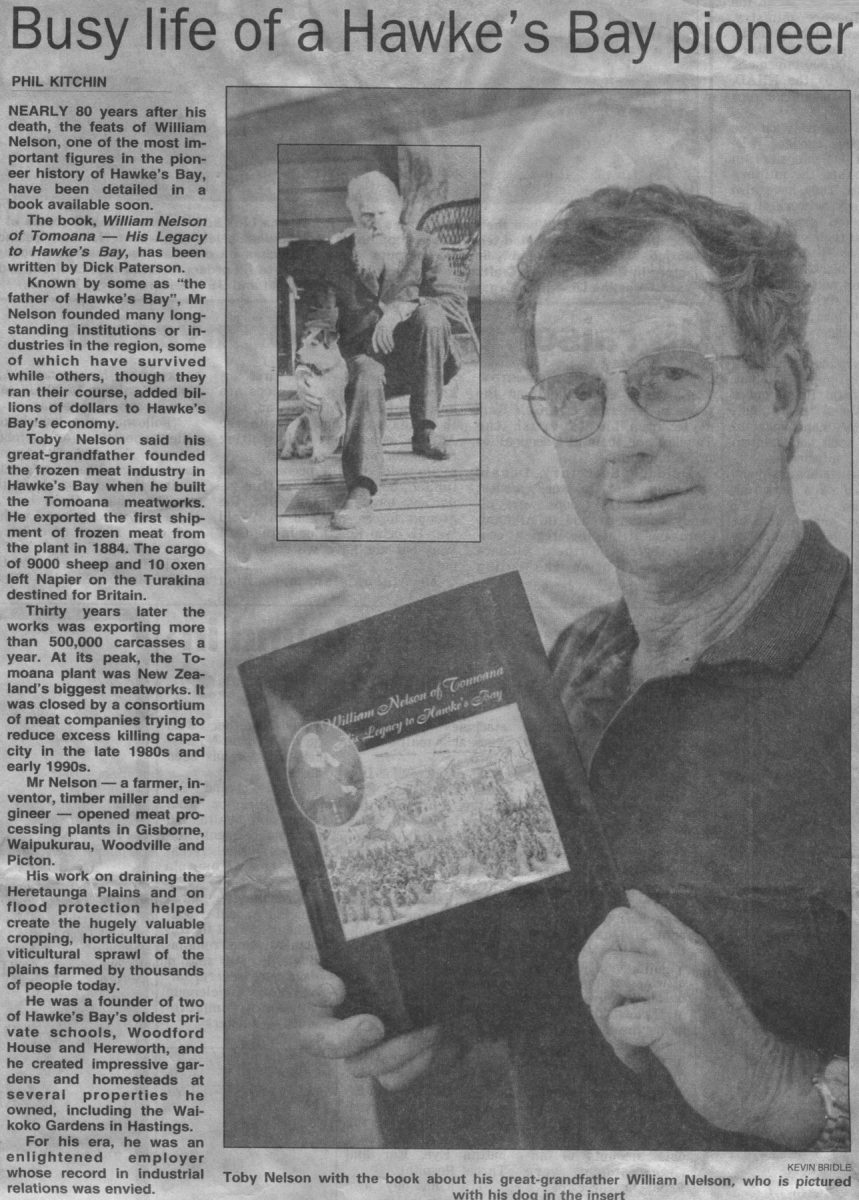Busy life of a Hawke’s Bay pioneer
PHIL KITCHIN
Nearly 80 years after his death, the feats of William Nelson, one of the most important figures in the pioneer history of Hawke’s Bay, have been detailed in a book available soon.
The book, William Nelson of Tomoana – His Legacy to Hawke’s Bay, has been written by Dick Paterson.
Known by some as “the father of Hawke’s Bay”, Mr Nelson founded many longstanding institutions or industries in the region, some of which have survived while others, though they ran their course, added billions of dollars to Hawke’s Bay’s economy.
Toby Nelson said his great-grandfather founded the frozen meat industry in Hawke’s Bay when he built the Tomoana meatworks. He exported the first shipment of frozen meat from the plant in 1884. The cargo of 9000 sheep and 10 oxen left Napier on the Turakina destined for Britain.
Thirty years later the works was exporting more than 500,000 carcasses a year. At its peak, the Tomoana plant was New Zealand’s biggest meatworks. It was closed by a consortium of meat companies trying to reduce excess killing capacity in the late 1980’s and early 1990’s.
Mr Nelson – a farmer, inventor, timber miller and engineer-opened meat processing plants in Gisborne, Waipukurau, Woodville and Picton.
His work on draining the Heretaunga Plains and on flood protection helped create the hugely valuable cropping, horticultural and viticultural sprawl of the plains farmed by thousands of people today.
He was founder of two Hawke’s Bay schools, Woodford House and Hereworth, and he created impressive gardens and homesteads at several properties he owned, including the Waikoko Gardens in Hastings.
For his era, he was an enlightened employer whose record in industrial relations was envied.
Photo caption – Toby Nelson with the book about his great-grandfather William Nelson who is pictured with his dog in the insert.












Do you know something about this record?
Please note we cannot verify the accuracy of any information posted by the community.